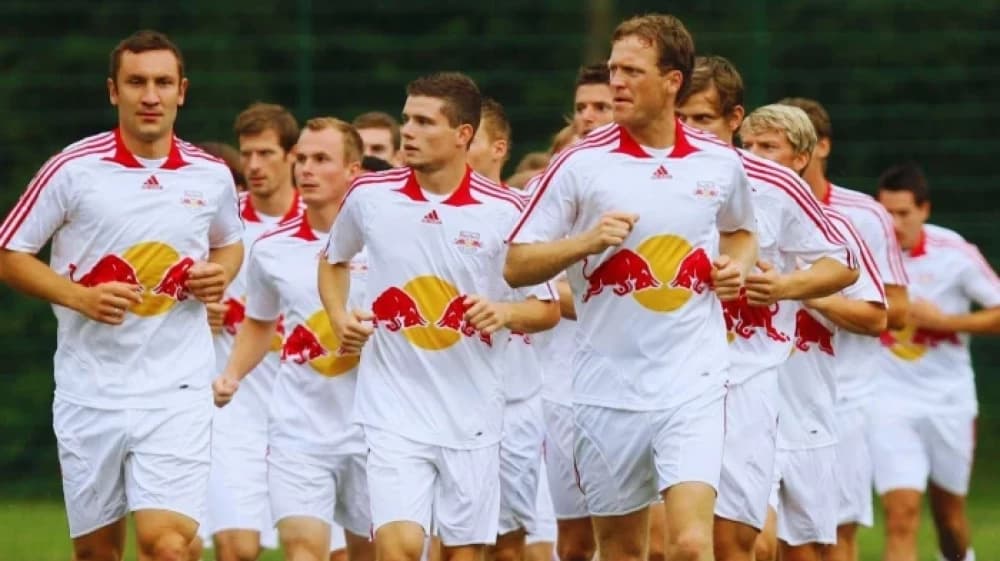
From Corporate Backing to Bundesliga Brilliance – How RB Leipzig Redefined German Football
Introduction
RB Leipzig, officially known as RasenBallsport Leipzig e.V., is a German professional football club based in Leipzig, Saxony. Founded in 2009 under the initiative of Austrian energy drink giant Red Bull GmbH, the club has rapidly ascended through the ranks of German football, becoming one of the most talked-about teams in Europe. Known for its aggressive playing style, state-of-the-art infrastructure, and innovative approach to player development, RB Leipzig has redefined what it means to be a modern football club. However, its rise has not been without controversy, as traditionalists criticize its corporate-backed model. This article delves into the club’s history, achievements, infrastructure, fanbase, and future ambitions, exploring how RB Leipzig has become a symbol of both progress and polarization in football.
The Birth of RB Leipzig
RB Leipzig’s origins trace back to 2009 when Red Bull GmbH sought to establish a foothold in German football. After failed attempts to invest in clubs like FC Sachsen Leipzig, FC St. Pauli, and Fortuna Düsseldorf, Red Bull turned its attention to SSV Markranstädt, a fifth-tier club located near Leipzig. Acquiring the club’s playing rights, Red Bull rebranded it as RasenBallsport Leipzig (RB Leipzig), cleverly circumventing German Football Association (DFB) regulations that prohibit corporate names in club titles. The club’s mission was clear: to reach the Bundesliga within eight years.
From its inception, RB Leipzig adopted a unique structure. While the club operates under the 50+1 rule, which mandates member control, Red Bull’s influence is evident through its financial backing and strategic direction. This model has drawn criticism from traditionalists but has also allowed Leipzig to achieve unprecedented success in a short time.
A Meteoric Rise Through the Ranks
RB Leipzig’s journey through the German football pyramid is nothing short of extraordinary. Starting in the fifth-tier NOFV-Oberliga Süd in 2009, the club achieved four promotions in seven years, reaching the Bundesliga in 2016. This rapid ascent was fueled by significant financial investment, a clear tactical philosophy, and a focus on recruiting young, high-potential players.
In their debut Bundesliga season (2016–17), Leipzig finished second, securing Champions League qualification and announcing their arrival on the European stage. Key players like Timo Werner, Naby Keïta, and Emil Forsberg became household names, embodying the club’s high-energy, pressing style of play.
Domestic and European Success
Since their promotion, RB Leipzig has established itself as a consistent force in German football. The club has regularly finished in the top four of the Bundesliga, earning multiple Champions League appearances. Their European journey reached its peak in the 2019–20 season when they advanced to the Champions League semi-finals, defeating the likes of Tottenham Hotspur and Atlético Madrid along the way.
Domestically, Leipzig claimed their first major trophy in 2022, winning the DFB-Pokal after a thrilling penalty shootout against SC Freiburg. They successfully defended their title in 2023, defeating Eintracht Frankfurt 2–0 in the final. These victories solidified Leipzig’s status as one of Germany’s elite clubs.
Infrastructure and Player Development
RB Leipzig’s success is underpinned by world-class infrastructure and a robust player development system. The club’s home ground, the Red Bull Arena, is a modern stadium with a capacity of 47,000, providing an electric atmosphere for home games. The training facilities in Leipzig’s Cottaweg district are among the best in Europe, featuring state-of-the-art technology and amenities.
Leipzig’s recruitment strategy focuses on identifying and nurturing young talent. The club has a global scouting network, leveraging connections with other Red Bull-affiliated teams like FC Red Bull Salzburg. Notable academy graduates and signings include Joshua Kimmich, Timo Werner, and Christopher Nkunku, all of whom have gone on to achieve success at the highest level.
Controversies and Criticisms
Despite their on-field success, RB Leipzig remains a polarizing figure in German football. Critics argue that the club’s corporate-backed model undermines the 50+1 rule and the traditional fan-owned structure of German clubs. Leipzig’s limited membership system, which allows Red Bull to maintain significant control, has drawn widespread opposition from rival fans and traditionalists.
The club’s rapid rise has also sparked rivalries, particularly with Borussia Dortmund and Bayern Munich. Matches against these teams are often charged with tension, both on and off the pitch. Additionally, Leipzig’s encounters with Dynamo Dresden in the Saxony Derby have been marred by protests and hostility, reflecting the deep-seated animosity toward the club’s ownership model.
The Fanbase and Community
RB Leipzig’s fanbase is a unique blend of local supporters and newer fans drawn to the club’s success. While the club lacks the deep-rooted traditions of older teams, it has cultivated a passionate following in Leipzig and across Saxony. The club’s community initiatives, including youth development programs and social projects, have helped build a strong connection with the local population.
Matchdays at the Red Bull Arena are characterized by vibrant atmospheres, with chants like "Wir sind Leipzig" (We are Leipzig) and the singing of "You’ll Never Walk Alone" creating a sense of unity among supporters. Despite facing criticism and protests from rival fans, Leipzig’s supporters remain fiercely loyal, embracing the club’s identity and achievements.
The Present and Future
As of 2023, RB Leipzig continues to compete at the highest level, both domestically and in Europe. The club’s squad boasts a mix of experienced players and emerging talents, ensuring a balance of youth and maturity. Under the guidance of innovative coaches, Leipzig remains committed to its high-pressing, attacking style of play.
Looking ahead, the club’s ambitions are clear: to challenge Bayern Munich for the Bundesliga title and make deeper runs in the Champions League. With a strong financial foundation, a world-class academy, and a clear vision for the future, RB Leipzig is well-positioned to achieve these goals.
However, challenges remain. Retaining top players in the face of interest from bigger clubs, navigating the complexities of financial fair play, and addressing ongoing criticism from traditionalists will all play a role in shaping Leipzig’s future.
Conclusion
RB Leipzig’s rise from obscurity to prominence is a testament to the power of ambition, innovation, and strategic investment. While the club’s corporate-backed model continues to spark debate, its on-field success and commitment to excellence are undeniable. Whether viewed as a symbol of progress or a challenge to tradition, RB Leipzig has firmly established itself as a modern football powerhouse. As the club continues to evolve, its journey will undoubtedly remain one of the most fascinating stories in the world of football.





